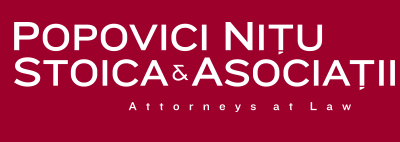- About Us
-
Expertise
- Banking & Finance
- Capital Markets
- Competition & Antitrust
- Corporate & Commercial
- Data Privacy
- Employment & Pensions
- Energy & Natural Resources
- Gambling & Betting
- Healthcare & Pharmaceuticals
- Insurance
- Intellectual Property
- International Arbitration
- Litigation
- Mergers & Acquisitions
- Project Finance/PPP, Concessions & Infrastructure
- Public Procurement
- Real Estate
- Restructuring & Insolvency
- Sports Law
- Tax
- Telecommunications, Media & Technology
- Transports & Logistics
- White Collar Compliance & Defense
- Our team
- Careers
- Publications
- News and Press
- Contact
Press Reviews
Companies All-In: Eyes Wide Open in the Romanian White-Collar Crime Context
Legal Opinion
Interview with Alexandru Ambrozie, Head of the White-Collar Compliance & Defense Department at Popovici Nițu Stoica & Asociații
We noticed an increasing number of law firms developing a white-collar crime practice. Why is that? Do you see an increasing demand for this type of services?

Law firms are always adapting and preparing to meet the clients’ needs. In this respect, although there has always been a demand for services related to white- collar crimes, this area of practice has been significantly expanding during the last years.
This comes as a result of the changes taking place in Romania, as well as globally: the fight against corruption has intensified; criminal authorities are focusing more on economic offences all over the world; the number of legal entities, CEOs, CFOs and board members who are under investigation or have been convicted has increased significantly.
Also, many white-collar cases require a multidisciplinary approach, in addition to the criminal knowledge, which is best provided by law firms covering various areas including tax, corporate matters, public procurement etc.
How would you describe the white-collar crime ‘trend’ in 2017?
Globalization is making its way into every aspect and white-collar crime could make no exception. More and more white-collar crimes nowadays have a transnational element and many regional and international organizations are advancing changes in the national legislations and promoting cooperation between states in the fight against crime. Therefore, it is fair to say that collar crime practice, especially within the European states, is gradually reaching a common ground.
However, as with every adjustment in such a “sensitive” field, the change cannot come overnight, and, at least for now, the white-collar crime practice in Romania has some particularities that set it apart.
Which are the specific aspects of the local “collar crime practice” area?
Unfortunately, the Romanian crime system is oriented towards sanctioning rather than compliance and prevention, this approach being “facilitated” also by the ever-changing, often contradictory legislation and by the extensive number of enforcement authorities, with overlapping powers, usually in the field of tax, EU funds and public funds.
This puts a great deal of pressure on companies and their boards, seeing that they remain the only players when it comes to prevention and compliance, but the tables turn whenever a company treads away and is investigated in connection with an alleged crime.
Furthermore, we see in Romania a tendency towards criminalizing corporate and tax matters, many tax noncompliance issues being too easily qualified as tax evasion.
A KPMG study shows that most frauds in Romania are discovered thanks to anonymous sources (54%), while globally 19% of frauds were discovered thanks to formal procedures. Why this difference?
The relatively high percentage of criminal investigations that commence pursuant to information provided by whistleblowers is probably due to the national legislation. In Romania, the law is lenient with defendants who agree to provide information concerning other offences, stating that they will benefit from a reduction of the sentencing limits to half. Apart from the law provisions, companies are coming to realize that cooperating with investigative authorities, self-reporting or conducting internal investigations is turning out to be in their own benefit.
How can a company protect itself from fraud?
In order to protect themselves, companies need to establish, consistently apply and update whenever necessary various monitoring mechanisms and policies, such as anti-money laundering policies; anti-corruption policies; adequate due diligence on partner companies and all business relations, whether with clients, agents or suppliers.
Unfortunately, many companies used to be reluctant in taking such measures, usually claiming that they are not necessary, that they trust their employees or business partners, or simply that such measures are too expensive and somehow interfere too much with the ordinary course of business. However, this is coming to an end in light of the global direction keeping the board members liable for criminal offences in their companies unless they are able to prove that they’ve taken all reasonable measures to prevent them.
Also, in addition to establishing a basic set of preventive measures, companies need to be aware of certain ‘red flag’ situations which require further consideration.
Worth mentioning are the intra-group transactions for which companies involved must apply the arm’s length principle and ensure that the price reflects the market value. In such cases, related parties usually call on transfer pricing consultants to prepare a transfer pricing report and assume that by complying with the provisions of the report, they consequently obey the law. However, companies don’t often realize that they are the ones providing the business assumptions and forecasts on which such reports are based. As a result, if companies don’t have a sound basis for the presumptions made or fail to provide accurate information to consultants, they may end up being investigated for tax evasion and usually also for money laundering as well.
Download Article










